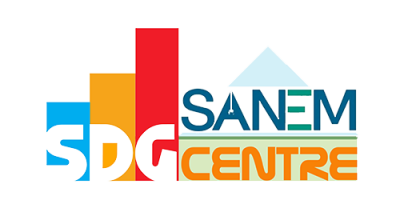The Sustainable Development Goals (SDGs) represent a global commitment towards fostering a sustainable future, targeting the eradication of poverty, environmental protection, and the assurance of peace and prosperity for everyone by the year 2030. Adopted by all member countries of the United Nations in 2015, the SDGs are a collection of 17 interlinked global goals designed to be a “blueprint to achieve a better and more sustainable future for all.”
According to the Sustainable Development Report 2023 (https://dashboards.sdgindex.org/), Bangladesh has an SDG Index of 65.9, ranking 101st out of 166 countries. This is better than India (63.5) and Pakistan (58.9), but worse than Thailand, Vietnam, Indonesia, Malaysia, and Sri Lanka. The report, however, shows that despite moderate performance in several SDGs, Bangladesh faces major challenges in achieving them. The report also reveals that among all SDG targets, only 30.9% of targets are on track, 41.2% have limited progress, and 27.9% are worsening.
The business-as-usual approach will not help Bangladesh to achieve most of the SDGs. Therefore, there is a need to rethink the strategies and actions to attain the SDGs in Bangladesh. In the rethinking process of attaining SDGs, critical institutional and political economy challenges need to be addressed in Bangladesh. It should also be kept in mind that despite some notable progress on economic and social fronts over the past few decades, the country is facing the worst macroeconomic challenges in recent times. The SDGs entail a huge financial gap for Bangladesh. This requires mobilizing and leveraging various sources of financing, such as domestic revenue, foreign aid, private-sector investment, and public-private partnerships.
Implementation of SDGs would require an effective regulatory environment, which means that the government has the capacity and authority to design and enforce rules and regulations that promote the public interest and the common good. It involves multiple actors and sectors, both at the national and sub-national levels, such as the government, civil society, private sector, academia, media, and other stakeholders. This means, achieving SDGs demands a whole-of-government and whole-of-society approach. This requires a strong coordination mechanism to ensure coherence, alignment, and accountability of the SDG implementation, which means that all the actors and sectors need to work together in a coordinated and coherent manner, following a common vision, strategy, and plan, and reporting on their progress and performance.
In this context, SANEM launched the SANEM SDG Centre on October 2018. SANEM SDG Centre acts as a platform for exchanging ideas, initiating research studies, and arranging capacity building workshops on a regular basis.


Israt Hossain
Coordinator, SANEM SDG Centre
Ekramul Hasan and Dipa Das
Co-coordinator, SANEM SDG Centre
